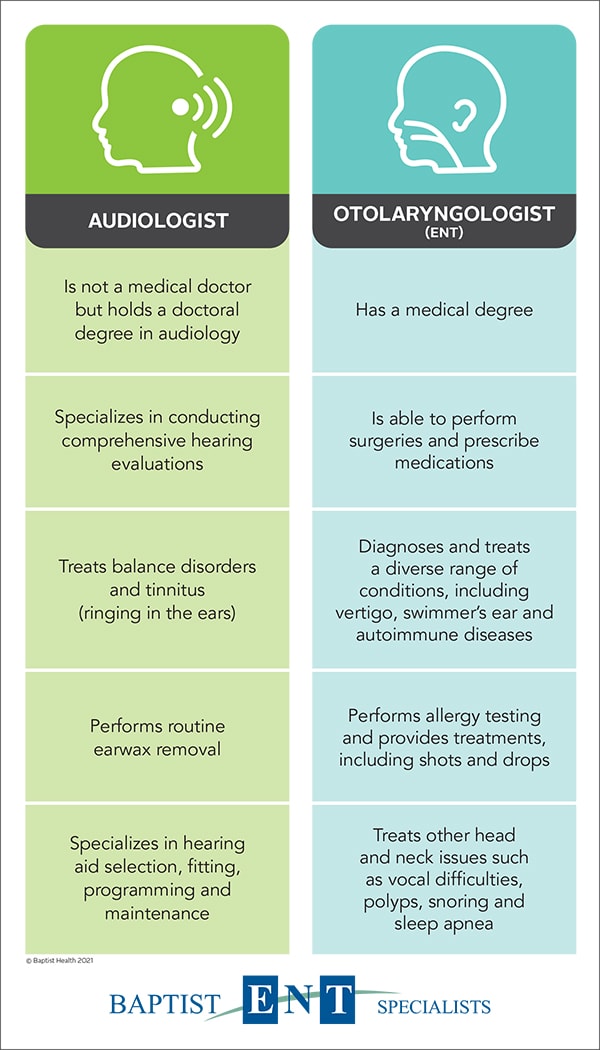Hear, hear!
How to tell whether you need an audiologist or ENT.
Article Author: Johnny Woodhouse
Article Date:

Hearing loss is a natural part of the aging process, but it can also be a sign of an underlying medical condition.
If you are experiencing gradual hearing loss, it’s time to see either an audiologist or an otolaryngologist, also called an ear, nose and throat (ENT) physician.
Audiologists help prevent, diagnose and treat typical hearing and balance disorders for people of all ages. ENTs treat more profound types of hearing loss caused by, among other things, inner ear or sinus infections, trauma or benign tumors in the head or neck.
As Brooke Davidson, AuD, an audiologist with Baptist ENT Specialists, explained, audiologists are experts who deal specifically with hearing while ENTs deal with medical problems of the ear and a wide range of head and neck conditions.
Defining the differences
While there are some similarities between the two auditory specialists, it’s important to know which one is right for your particular situation.
Here are some helpful hints:

A hearing test called an audiogram, which measures the sensitivity of a person’s hearing across a full range of speech, is a good place to start. The test is painless and takes about 30 minutes. An audiologist reviews the results and determines the patient’s degree of hearing loss.
If the audiologist is unable to determine the cause or it is beyond his or her treatment parameters, he or she will refer the patient to an ENT specialist.
“Rest assured, your otolaryngologist or audiologist will make the proper referral when necessary,” Davidson said.
If you or a loved one is suffering from hearing loss, call 904.202.4YOU (4968) or fill out the appointment request form for help in finding an audiologist or ear, nose and throat specialist near you.



